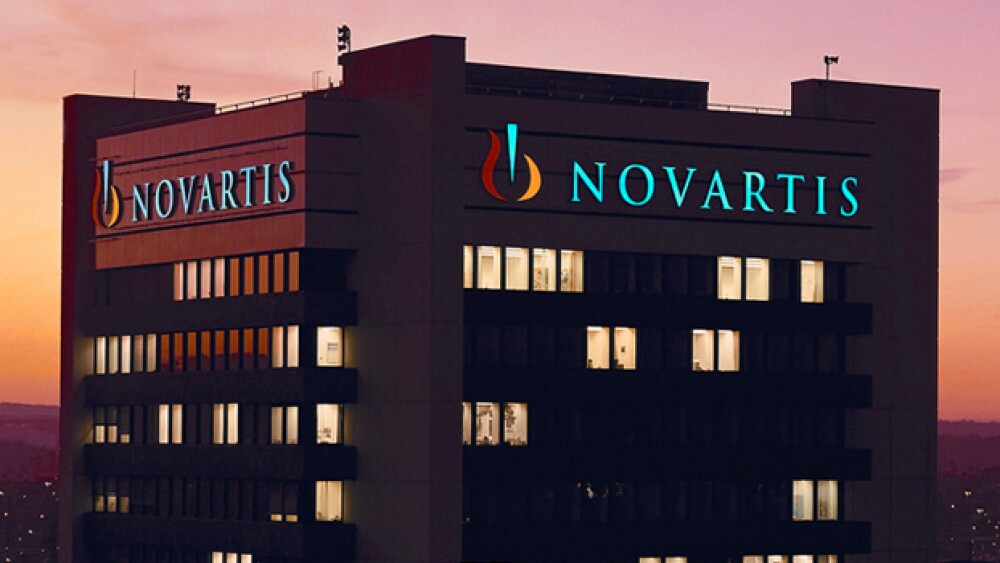As Novartis locks in on a $13 billion deal with GlaxoSmithKline (GSK), Novartis chief executive officer Vasant Narasimhan confirms that any decision about spinning off its Alcon eye care business won’t be made until the first half of 2019.
As Swiss-based Novartis locks in on a $13 billion deal with London-based GlaxoSmithKline (GSK), Novartis chief executive officer Vasant Narasimhan confirms that any decision about spinning off its Alcon eye care business won’t be made until the first half of 2019.
Novartis has been considering spinning off its Alcon eye care business or possibly its Sandoz generics business. Narasimhan told CNBC at the China Development Forum, “With Alcon … we look forward to taking a potential action, moving toward a potential decision in the first half of 2019. And that’s still the timeline that we will maintain and no change on that.”
Alcon sales had been faltering for several years, but last year reported sales growth, which potentially may be why the decision to spin it off is being kicked down the road. “We want to continue to see both sales growth and profitability improve,” Narasimhan told CNBC. “But we still think it would be the right timeline to look towards that first half of ’19 for any potential action on Alcon.”
He also indicated there were no plans to change Sandoz. The generics market has grown even more competitive as the industry consolidates, but Narasimhan said Sandoz still saw “great strength and growth” in biosimilars. “We continue to evaluate all options in the U.S. business that’s been under pressure, but we haven’t made any decisions.”
In its full-year financial report on March 13, Novartis reported a 5 percent growth in revenues for the quarter and a 1 percent growth for the year. The biggest growth areas, which dominate the company’s revenue, were in Innovative Medicines. Alcon is the smallest proportion. Innovative Medicines showed about $8.8 billion in revenue in the fourth quarter, six percent growth. Sandoz revenues were almost flat at $2.6 billion for the quarter, including a 4 percent drop in operating revenues.
Alcon reported fourth-quarter revenues of $1.6 billion, an 8 percent growth compared to $1.4 billion in the same quarter the year before. That also included a 6 percent growth in operating revenues and a 2 percent positive impact of foreign exchange.
Alcon’s business includes vision care products, but also surgical products. Its ophthalmic pharmaceuticals products were transferred to the Innovative Medicines division in 2016.
The Alcon division reported growth across all geographic markets. U.S. sales grew about 3 percent in the fourth quarter to $639 million, while European sales increased by about 11 percent to $420 million during the fourth quarter. Canadian and European markets grew by 10 percent to about $122 million in the same period. The Asia/Africa/Australasia markets grew 15 percent to $377 million in the final quarter.
While Novartis has delayed the Alcon decision, GlaxoSmithKline has agreed to pay Novartis $13 billion for its 36.5 percent stake in the two companies’ joint venture in consumer health care. The original joint venture was launched three years ago. Under the terms of the deal, Novartis could require—starting this month—GSK to buy its stake in the venture.
The 2014 joint venture combined many of the two companies’ best-known brands under one company, including Exedrin for pain, NiQuitin to stop smoking, and TheraFlu for cold and flu. It was part of a complicated deal that included Novartis buying GSK’s oncology business.
Analysts with Jefferies speculated in a note to investors that the GSK deal may have been prompted by an “imminent bolt-on deal” by Novartis. To help pay for the deal, as well as to more closely focus on its over-the-counter and oral-health divisions, GSK is reviewing its Horlicks and other consumer-health nutrition products and expects to decide by the end of the year.





